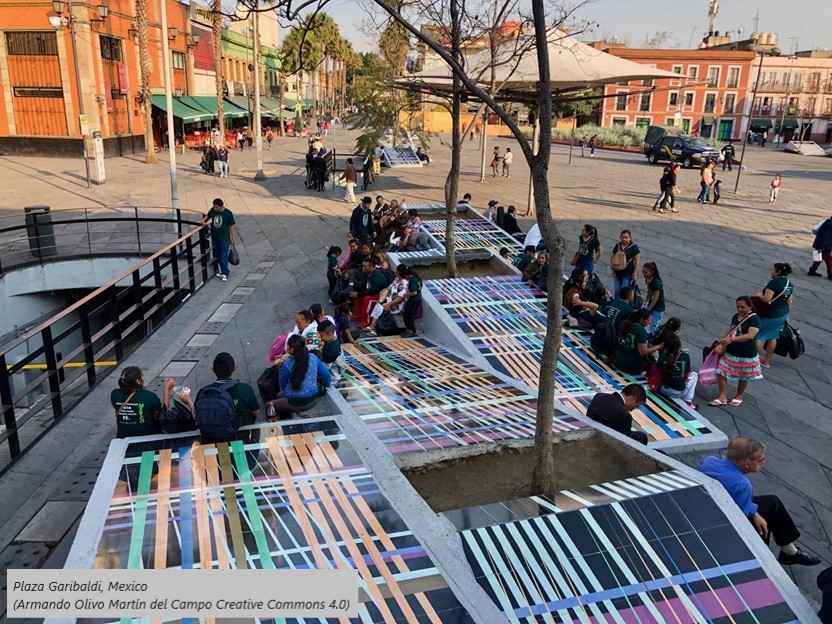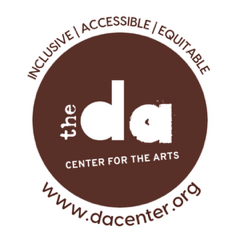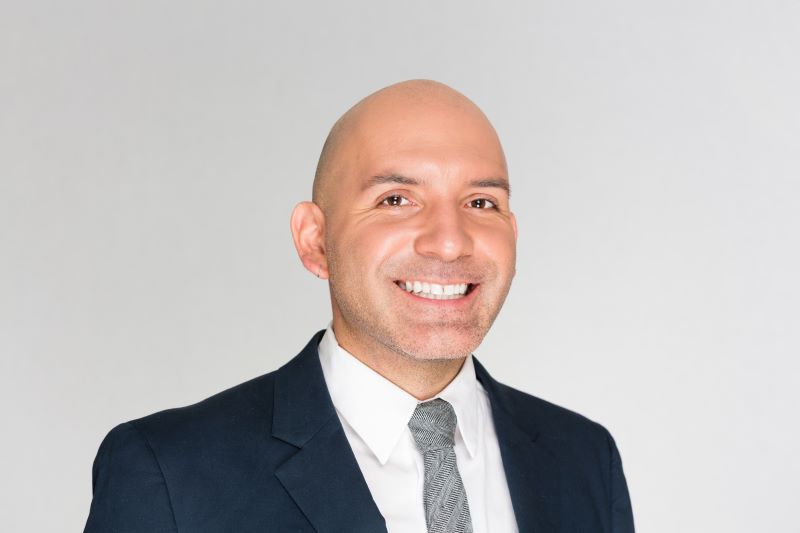2024 Dale Prize: Planning and Art
March 5, 2024
Press the tab key to view the content. Use the down arrow key to move to the next tab and up arrow key to move to the previous.

The Dale Prize recognizes planning excellence, creates dialogue between scholars and practitioners, and enriches the education of planning students. The Dale Prize is awarded in pairs: a $5,000 award to a scholar and a $5,000 award to a practitioner. Awardees spend two days meeting with students in classes and participate in a colloquium and other events.
The 2024 theme is Planning & Art
That intersection is the focus on the 2024 Dale Prize theme. We seek an individual or an organization involved in art that engages communities in placemaking/placekeeping, visioning, or other planning activities centered on neighborhood social mobility and equity. In addition, we seek a scholar whose work positions these phenomena in contemporary
planning/urbanist thought.
The Department of Urban and Regional Planning at Cal Poly Pomona seeks nominations for the 2024 William R. and June Dale Prize for Excellence in Urban and Regional Planning.
The Dale Prize seeks a scholar and a practitioner in the intersections of planning and art to explore related issues and phenomena with the Urban and Regional Planning students and the rest of the Cal Poly Pomona community. Dale Prize events will be held March 5 - March 7, 2024.
Nominations are due on December 4, 2023.
Nominations Procedure
The prize winners will be selected based on:
- Evidence of substantial knowledge contribution to the field. This includes but is not limited to the quality and quantity of research, research/practice collaborations, impact on the field, and peer recognition.
- Applicability to the theme, Planning & Art
- Potential for linking research results to planning theory (scholar).
- Engagement in placemaking/placekeeping, visioning, or other planning activities centered on neighborhood social mobility and equity. (practitioner).
The package may be submitted in digital format by email or through a file sharing service. Self-nomination is accepted.
The package should include the following:
Nomination of Scholars
- Nominating Cover Letter
- Name and current affiliation and description of nominee’s contribution to the field
- Narrative justifying the nomination (3 page maximum)
- Nominee’s Curriculum Vitae
- Description and examples of research, publications and/or other contributions to the field. This can include links to internet sites where research or publications can be reviewed.
- Contact information for the nominator
- Contact information for the nominee
- Approval by nominee of the nomination, including a commitment to be available in person for the full days of March 5-March 7, 2024.
Nomination of Practitioners
- Nominating Cover Letter
- Name and current affiliation and description of nominee’s contribution to the field
- Narrative justifying the nomination (3 page maximum)
- Resume/Curriculum Vitae/Portfolio
- Description and examples of projects, programs, experience and other contributions to the field. This can include links top internet sites where installations or other outputs can be reviewed.
- Contact information for the nominator
- Contact information for the nominee
- Approval by nominee of the nomination, including a commitment to be available in person for the full days of March 5-March 7, 2024.
Submittals should be electronically sent to: urpdept@cpp.edu. Please put 2024 Dale Prize Nomination in the subject line.
Contact
If you have additional questions, please contact:
Dr. Gwen Urey
gurey@cpp.edu
(909) 869-2688
The Department of Urban and Regional Planning at Cal Poly Pomona is pleased to announce the winners of the 2024 William R. and June Dale Prize for Excellence in Urban and Regional Planning. John C. Arroyo, Ph.D., assistant professor of Urban Studies and Planning and Chicanx and Latinx Studies at the University of California San Diego, has won the Scholar Prize. The dA Center for the Arts in Pomona has won the Practitioner Prize.
Practitioner Winner
The dA Center for the Arts

The dA Center for the Arts is a diverse, multidisciplinary, nonprofit organization, aiming to enhance the quality of life for the greater Pomona community by educating about and providing opportunities to experience, appreciate, and support the arts through inclusive and healthy community activities. The dA is a comprehensive cultural arts center in downtown Pomona which serves as a gathering space for youth, creatives, families, and those yearning for inspiration, connectivity, and self expression in an inviting and safe space. We are an organization that centers inclusion and practices collaboration as a means of bringing the community together for social, environmental and healthy community advocacy. The arts in all mediums are a powerful tool to engage, elevate, and disseminating important information. We believe the social application of the arts is an important means of advancing the improvements and change in our local community and beyond.
The dA Center for the Arts operates under the premise that art is a human right not a luxury. Thanks to the vigorous art programming that we carry out, communities enrich their lives, and most importantly they are given the opportunity to imagine and bring to fruition other, better lives. If art in general allows us to experience reality from different perspectives, giving access to art becomes even more relevant when the reality that surrounds us is defined by struggle, scarcity, conflict, injustice, and fear. This is the case with the population we serve, which has a higher percentage living under the line of poverty than the rest of the country.
Art is woven into the historical narrative of Pomona and will contribute significantly to the future success of the community as an unified and innovative city. Showcasing the work and legacy of local artists serves as inspiration for younger generations. Art has the power to connect community members to a larger sense of purpose and teaches essential skills in collaboration, leadership, critical thinking and creative problem solving that have implications beyond the art studio and classroom. When given the proper resources and encouragement, art transcends and can help individuals process adversity, inequality and inequity, and forge a new path forward. The dA pARTners and enhances many sectors of civic, social, faith, government, nonprofit, and philanthropy entities of Pomona as well as community gardens/ agriculture, commerce (economic development), education on all levels from Head Start through college level, mental health, housing, immigration, public safety, transportation, and workforce development.
Scholar Prize Winner
Dr. John C. Arroyo, AICP
Assistant Professor of Urban Studies and Planning and Chicanx and Latinx Studies at the University of California San Diego
 John C. Arroyo, Ph.D., AICP is Assistant Professor of Urban Studies and Planning and Chicanx and Latinx Studies at the University of California San Diego. Prior to his appointment at UC San Diego he was Assistant Professor in Engaging Diverse Communities (with affiliations in the departments of Indigenous, Race, and Ethnic Studies and Historic Preservation) at the University of Oregon, where he was also Founder and Director of the Pacific Northwest Just Futures Institute for Racial and Climate Justice – the largest social science and humanities grant awarded in UO’s history. Previously, Dr. Arroyo was an Andrew W. Mellon Foundation Fellow in Latino Studies at the School for Advanced Research in Santa Fe, New Mexico. Arroyo received his doctorate in Urban Planning, Policy, and Design from MIT. He is a national expert on the social, political, and cultural dimensions of immigrant-centered built and natural environments, urban design practices in emerging gateways, and arts and cultural planning. His scholarly and applied research has been published in the Journal of the American Planning Association, Journal of Planning Education and Research, Planning Theory and Practice, Cityscape and featured on national media outlets such as the Los Angeles Times, NPR, and U.S. News and World Report. He has raised nearly $5 million through competitive grants and prestigious fellowships supported by the American Association of Hispanics in Higher Education, American Planning Association, Mellon Foundation, National Endowment for the Humanities, National Research Council/Ford Foundation, National Trust for Historic Preservation, and the Whiting Foundation. Dr. Arroyo currently serves on boards of the Public Humanities Network of the Consortium for Humanities Centers and Institutes (CHCI) and the School for Advanced Research (SAR). A certified planner, he has over 25 years of experience working with various arts and urbanism-related nonprofits, foundations, and government agencies in research, grantmaking, and technical assistance capacities across the US, Europe, Latin America, and the Caribbean. The son of Mexican immigrants, his commitment to social justice and equity is rooted in being born and raised East L.A.
John C. Arroyo, Ph.D., AICP is Assistant Professor of Urban Studies and Planning and Chicanx and Latinx Studies at the University of California San Diego. Prior to his appointment at UC San Diego he was Assistant Professor in Engaging Diverse Communities (with affiliations in the departments of Indigenous, Race, and Ethnic Studies and Historic Preservation) at the University of Oregon, where he was also Founder and Director of the Pacific Northwest Just Futures Institute for Racial and Climate Justice – the largest social science and humanities grant awarded in UO’s history. Previously, Dr. Arroyo was an Andrew W. Mellon Foundation Fellow in Latino Studies at the School for Advanced Research in Santa Fe, New Mexico. Arroyo received his doctorate in Urban Planning, Policy, and Design from MIT. He is a national expert on the social, political, and cultural dimensions of immigrant-centered built and natural environments, urban design practices in emerging gateways, and arts and cultural planning. His scholarly and applied research has been published in the Journal of the American Planning Association, Journal of Planning Education and Research, Planning Theory and Practice, Cityscape and featured on national media outlets such as the Los Angeles Times, NPR, and U.S. News and World Report. He has raised nearly $5 million through competitive grants and prestigious fellowships supported by the American Association of Hispanics in Higher Education, American Planning Association, Mellon Foundation, National Endowment for the Humanities, National Research Council/Ford Foundation, National Trust for Historic Preservation, and the Whiting Foundation. Dr. Arroyo currently serves on boards of the Public Humanities Network of the Consortium for Humanities Centers and Institutes (CHCI) and the School for Advanced Research (SAR). A certified planner, he has over 25 years of experience working with various arts and urbanism-related nonprofits, foundations, and government agencies in research, grantmaking, and technical assistance capacities across the US, Europe, Latin America, and the Caribbean. The son of Mexican immigrants, his commitment to social justice and equity is rooted in being born and raised East L.A.